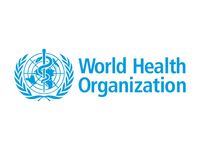How to take care of your mental health during the pandemic?
23.03.2020
The World Health Organization (WHO) indicates that due to the COVID-19 pandemic mental health problems can arise as one of its side effects. This time of crisis is generating stress in the whole population, regardless of age. We are forced to leave our comfort zones and comply with newly set patters, rules and standards. What the specialists emphasize is that how we will endure quarantine or other forms of isolation or limited activity depends primarily on how we approach the new situation and whether we are able to find something even remotely positive in it.
How to cope? The specialist recommend to support each other and not to stigmatise people infected with the SARS-COV-2 virus. They do not bear the blame for falling ill.
The anxiety and fear inflicted by this novel coronavirus make us browse the internet, social media and TV in search of even the smallest pieces of information related to it. We receive both reliable and completely unverified information. This in turn causes irrational behaviour. It is worth bearing in mind that there’s a lot fake news spreading online and one must proceed with great caution while browsing through the world wide web. However, it is not about completely cutting off the media, but about establishing certain rules, patterns of behaviour that you will later follow. For example, browse the Internet only at designated hour, devote specific amount of time to it, check only the latest news and developments, without reading everything that has been already written about them. The more you enter the cyber space, the easier it is to come across false information.
According to experts, even the people who had never experiences any mental heath problem, will experience anxiety – related to work, financial situation, health. Collective experiencing of emotions – even those deemed as negative, such as anxiety – may have its bright sides as well; provided that it established a safe space for support and sharing, rather than fuelling the negative emotion itself. It is a reality that we are all experiencing together and thus, it is worth keeping in touch with your family, friends and acquaintances; all that are close to you. Call them often, ask how they are holding up, how they feel – both emotionally and physically, learn about each other problems and work together for possible solutions. Do not feed the cycle of fear and anxiety.
Please find the WHO guidelines, with age grouping, enclosed.
